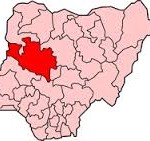By Asma’u Ahmad
The Federal Ministry of Environment, said it has facilitated the treatment of lead poisoning of more than 2, 500 children affected in Shikira community of Rafi Local Government Area of Niger state.
Deputy Director, Marine Pollution, Contamination Clean-Up and Remediation in the ministry, Mrs. Aanu Basil said other residents of the community were safe from lead poisoning with the clean-up.
Mrs. Basil made this known in Abuja in an interview with the Newsmen on Saturday.

She said that the clean-up programme was an intervention from government aimed at preventing lead poisoning outbreak in the community.
She observed that lead poisoning was as a result of illegal artisanal gold mining in Angwa Megero, Angwa Kawo and Shikira communities of the state.
Mrs. Basil said that the incident occurred few years after a tragedy outbreak of lead poisoning in the community killing about 28 children below the age of five. She said that the children who were contaminated from the lead poison had been treated by the government.
Aanu Basil said that three officials of the ministry visited the site on the spot assessment; adding that proposal for the cleaning-up project commenced in 2016.
She noted that the federal ministry of environment collaborated with the federal ministry of mines and steel and Ministry of Health to ensure effective implementation of the project.
“The report of the visit indicated increase in the number of death of children as a result of high concentration of lead contaminants ranging from 5000 to 166,000 ppm in the impacted environment. The situation was declared then as an emergency and immediate clean-up exercise of the impacted sites took place to enable tackle the situation,” she said.
The deputy director said that the project was being implemented in two phases with the collaboration of United States Environmental Protection Agency (USEPA).


